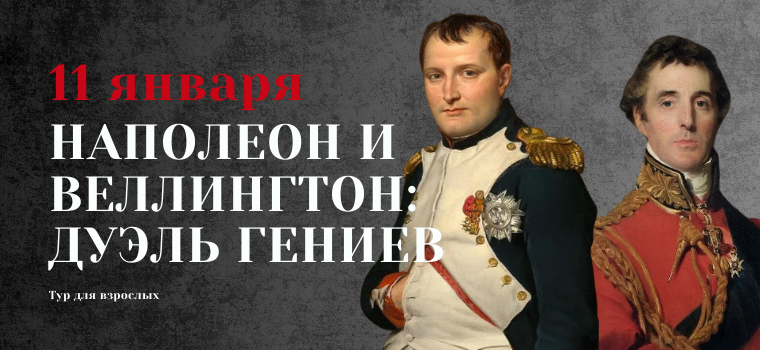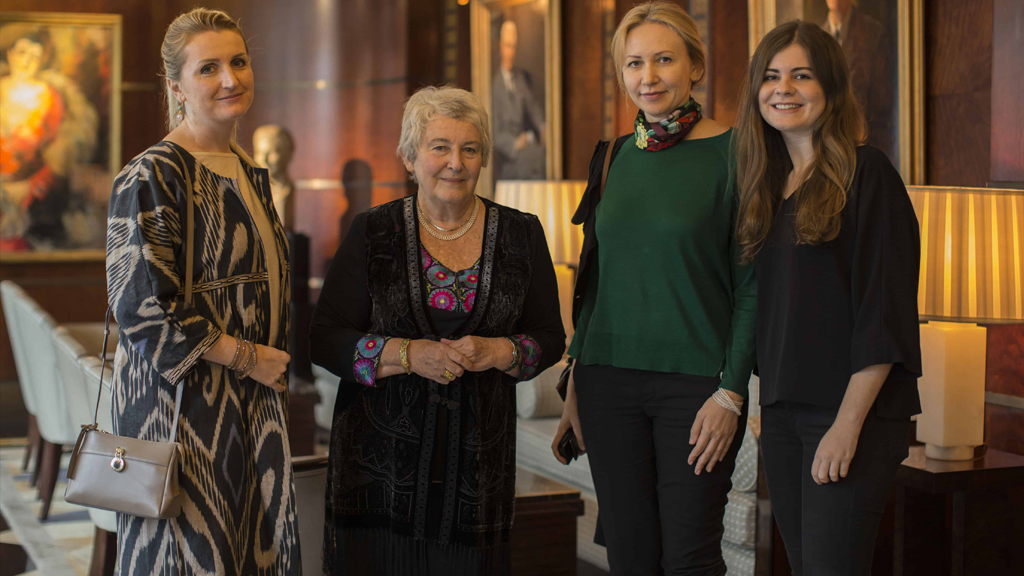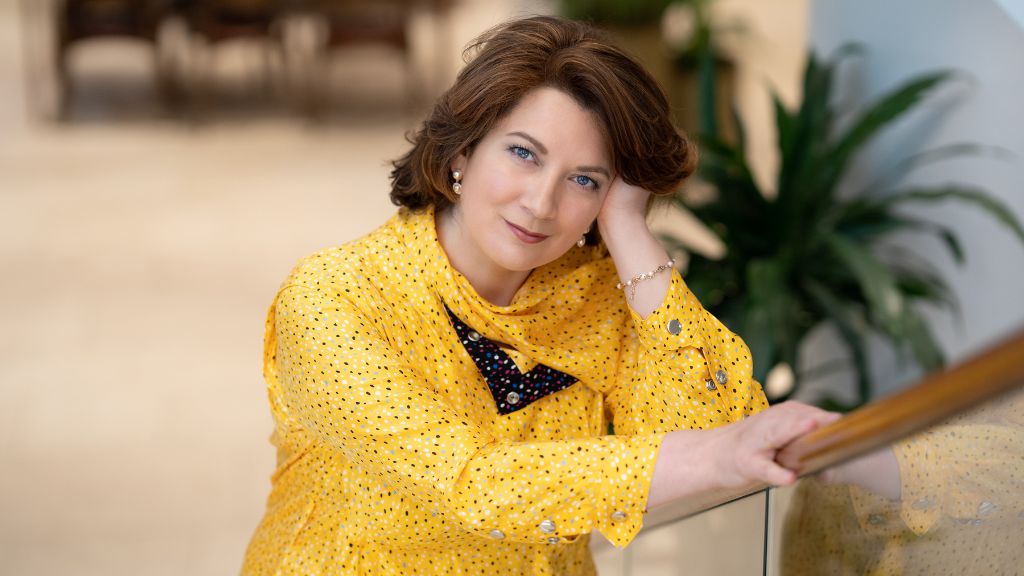
Justine Waddell talks about a season of screenings MELODIA!
Kino Klassika Foundation, in collaboration with the BFI (British Film Institute) and Institut Français of the United Kingdom, presents MELODIA! – a season of screenings of Soviet and Russian musicals in London. Afisha.London talked with the founder of Kino Klassika Justine Waddell about MELODIA! and her passion to Soviet films.
— Justine, you and I have known each other for about five years and all these years you have been educating the British audience (and Russian too) on the subject of Soviet and Russian cinema. Tell us where does such a passion for our films come from?
Like most people, I’d gotten to know Russia through books and music. Then, about 10 years ago, I was offered the lead in a Russian film, The Target, out of the blue. It was a sci-fi film based on Anna Karenina. My character was a native Russian I started learning Russian by watching Russian films. Speaking a language opens doors and emotions and a shared understanding that you wouldn’t otherwise have. And that’s how I became familiar with Russian cinema.

With Matthew Stephenson at the launch of the exhibition Eisenstein Drawings: Love, Lust and Laughter
— You started with screenings of historical films directed by Eisenstein, with which the British audience is nevertheless familiar with. But then you took a chance and introduced London to the films of the dashing and turbulent 1980s (like Interdevochka, ACCA, etc.). What shows were easier for you to organize? What was more exciting for the viewer?
One of the things that really inspires me is that there are a genuine hunger and curiosity for rare content – be it Russian or any other nationality. Many of our audience come to these films for exactly the experience of seeing something that they have seen and heard very little about it. It is that quality of experiencing something for the first time: the aesthetic, the style, the dialogue, the ambition that can make a film absolutely successful. I certainly think our screening of ASSA, which was basically sold out was a great example of that. We had a big Russian speaking attendance, but we also had a large contingent of curious cinemagoers who had heard about the film and the games the film plays within itself and just wanted to see it on the big screen. I know they didn’t speak Russian because we actually created the subtitles for it for Mosfilm. I still laugh when I think about translating some of the songs. Like Mochalkin Blues – which I think we translated as Babeish Blues.
— Your panorama Melodia is taking place in London now. Very interesting name! It certainly refers the Russian person to the vinyl records on which many generations grew. What is this festival about and where did its idea come from?
I’m so glad that the name rings bells. The Melodia record label was exactly what I was thinking about when we named the season. I’d heard rumours about it when I was living in Moscow. And then someone actually sent me the most wonderful record collection of rare cello and piano records. It was a real education into what you can do if you can save an archive (be it music or film) and reinvent it for a new audience.
The idea for the festival itself came about because we were invited to partner with the BFI to programme one film from Russia in the main BFI Musicals! season. We then grew the Melodia! season out of that. We took it as a great opportunity to screen films like Carnival Night, Melodies of the Vera Quarter, We are from Jazz, which should be much better known than they are outside of Russia. We are a complement to the very western focussed main programming. We’re the cherry on the cake [laughs

With Prof Ian Christie and Elena Sudakova at the opening of the exhibition Unexpected Eisenstein with GRAD: Gallery for Russian Art and Design
— Are these all digitized films with subtitles?
I am delighted to say that we have been able to get both Georgian classic melodies do the Vera quarter and the rarely screening Cheryomushki by Herbert Rappaport on 35mm. They were entrusted to us by Gosfilmfond and the Georgian national film center.
— I hope you do realize that for a great many Russian people living in London you will be showing these films for the first time on a big screen?! Generations of people who love the film Carnival Night, for example, saw it exclusively on a small blue screen. Do you feel a certain enthusiasm of a discoverer?
Thanks for making me sound like Christopher Columbus! Thank you for the compliment. One of the things that running the charity has really taught me is that there is a huge difference between watching a film on YouTube, watching a film on the big screen, and watching a film on the format which it was originally created. We try as hard as we can to film screens on 35mm. It really is a different sensation. I remember for the first film season we hosted in 2017 we showed Bertolucci’s masterpiece, 1900, on 35mm. It was 4 and a half hours long and one of the most unforgettable screen experiences we had as the way the film crackled and worked with the light was completely different to a digital experience. Obviously, it can become complicated with customs, to move films around, and that’s why we sometimes have to show digital. It means a great deal to me if Russian audiences are meeting a film for the second time, but for the first time in the formats in which they were originally created. Rather than on TV or youtube.

With Peter Bradshaw, Guardian Film Critic at the British premiere of the restored short film Hakob Hovnatanyan
— You end this festival with the film Leto. Roman Bilyk, who played Mike (as well as being the leader of the well-known music band Zveri), will come to the screening. Why Leto? Why is this movie so important?
I adore Leto, and I think it hasn’t quite received the critical acclaim it should have. Perhaps because the film itself has necessarily become overshadowed by Serebrennikov’s house arrest. It’s a gorgeous, clever, and provocative reimagining of time that I’ve certainly heard a lot about. And it has a real sense of the reckless freedom that those musicians created at that seminal point in Russian music and Russian history. It seems a fitting end to the season. One of the major themes of the season is the way that this tradition of filmmaking and music-making has engaged with western music and western musicals, and in Leto you have an example par excellence of music-making coming home to and being reinvented in Russia.
Margarita Bagrova
Main programme (all films with English subtitles):
Carnival Night(1956), dir. Eldar Ryazanov, Cine Lumiere, 14.01.2020
Melodies of the Vera Quarter (1973), dir. Giorgi Shengelaia, Cine Lumiere, 15.01.2020
Karine(1969), dir. Arman Manaryan, Cine Lumiere, 21.01.2020
A Man from the Boulevard des Capucines (1987), dir. Alla Surikova, Cine Lumiere, 22.01.2020
Hipsters (‘Stilgyagi’) (2008), dir. Valery Todorovsky Todorovsky’s, Cine Lumiere, 28.01.2020
Leto (2018), dir. Kirill Serebryannikov, Cine Lumiere, 31.01.2020
SUBSCRIBE
Receive our digest once a week with quality Russian events and articles




